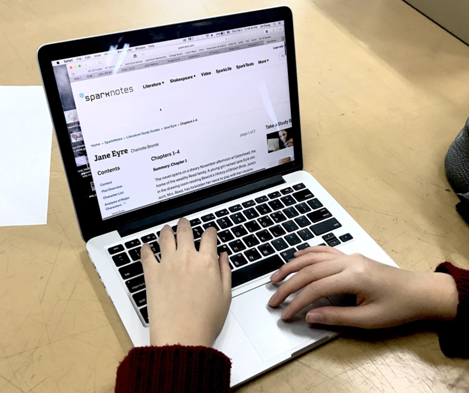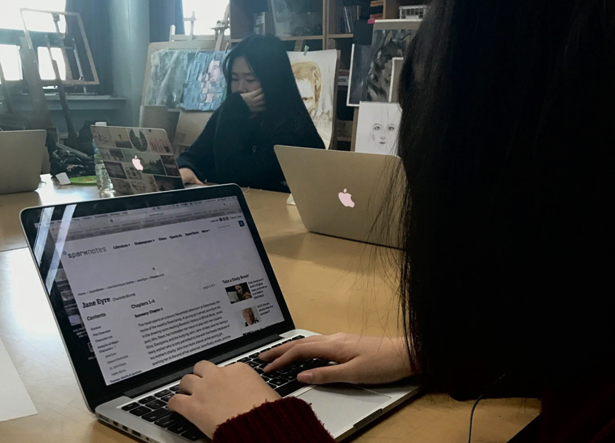
SparkNotes. Shmoop. CliffsNotes. These and many other online study guides have become famous or even notorious, depending on who you ask. The use of online study guides have become rampant these past years as students can simply go online and read a summary or analysis of books that are required for school assignments. The sites provide everything from chapter by chapter summaries to character analysis and even themes & motifs.
Students say that these sites are an invaluable tool to better understand and fully comprehend texts that sometimes can be difficult to process. Along with actually reading the book itself, these tools provide a helpful guide so that students can have an excellent reference to analyze and dissect books. While there is no substitute for actually reading a book, any assistance in better educating students can be thought of as a positive.
On the other hand, critics charge that sites like SparkNotes and Shmoop promote and encourage academic dishonesty. Students no longer need to read books and can simply go online to find most well-known texts. Since these sites provide study guides for literature that include chapter summaries, many educators see the website as a cheating tool. They argue that students can use the cheating tools as a replacement for actually completing reading assignments. This is one reason why teachers now include questions about specific quotes in the texts to test if the students actually read the book or not.

On SparkNotes website, its’ "About" age says it does not support academic dishonesty or plagiarism. Instead, it recommends that users of its materials read the original text and then use SparkNotes to compare their own analysis of the text with the SparkNotes' interpretation.
To get two opposing viewpoints on these controversial study guides, I asked two international school students their viewpoints on these sites.
Question 1: Do these online study guides promote academic dishonesty?
Student 1: Absolutely. If a book that is assigned in school is on SparkNotes or a similar site, I don't read the book. Why waste my time? I can better understand a book by using these study guides than by reading the actual book.
Student 2: It depends on how you use the study guides. For me, I use those guides after I have a read a book to understand some parts that I found difficult. For example, I had to read "Macbeth" last semester and certain passages in the play had ambiguous meanings so I wasn't sure how to interpret them. Also, things like foreshadowing are sometimes hard to catch so those study guides are a great tool to help students, if you use them in the correct way.
Question 2: How can teachers ensure that students are actually reading their assigned books?
Student 1: I don't think there is any way to ensure that. SparkNotes is owned by Barnes & Nobles, the biggest retailer of books in the U.S. If a bookstore doesn’t care if people buy books and instead publishes so called cheat sheets, why should anyone else care?
Student 2: Asking questions about specific passages or quotes is a tactic used by some of my teachers. Other than that, there’s nothing else that can be done. It is the responsibility of the student to read assigned literature and students should take that responsibility seriously.

Janie Lee
Grade 11
Seoul International School

